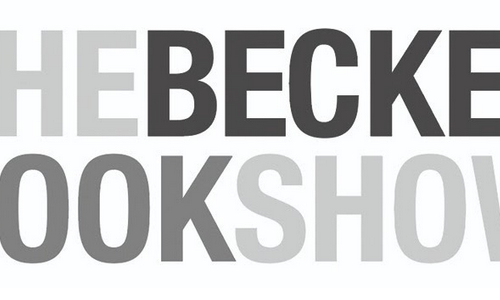I just read the news that Congressional Republicans have decided to abandon plans to vote on a bill protecting unborn children capable of feeling pain. According to the report, these “pro-life” lawmakers have decided to forsake the unborn for the sake of political expediency. The going got tough, and they got going. It is the definition of what Proverbs 24:10-12 warns against:
If you are slack in the day of distress,
Your strength is limited.
Deliver those who are being taken away to death,
And those who are staggering to slaughter, Oh hold them back.
If you say, “See, we did not know this,”
Does He not consider it who weighs the hearts?
And does He not know it who keeps your soul?
And will He not render to man according to his work?
I explained the meaning of this text in my sermon last Sunday to my church. You can download it here or listen below [starting at 14:55].
But here’s the relevant excerpt:
To be “slack in the day of distress” means to back down when there is a fight. No matter how strong you are–if you back down–whatever strength you have is irrelevant. This proverb pictures a person who has the ability, the means, and the strength to take a stand for the right thing. But when the chips are down–instead of taking a stand for justice–this person flinches.
Why do people flinch when they should fight? Maybe the cost of conflict seems too high, and they don’t want to risk losing social capital or influence. Maybe they are running for office in a place where it’s not popular. Maybe they don’t like to think about controversial things and always prefer the path of least resistance. Maybe they have been so influenced by worldly thinking, that they don’t see any need to protect innocent human life anymore. They’ve completely succumbed to the logic of the culture of death. They’ve grown accustomed to the idea that some people’s lives just aren’t worth saving. Maybe it’s just plain old cowardice.
Whatever the reason, if you are this kind of person, this proverb says that no matter how able and strong you are, you are really weak if you flinch instead of fight in the face of injustice. Your strength is “limited,” which is weakness.
What good is the quarterback who outperforms every other athlete on the team at practice, but can’t complete a pass during the game? What good is the politician who campaigns saying that he is strong on national security, but won’t lead the military to fight when our enemies move against us? What good is the soldier who is highly trained, but won’t march toward the front line where the fight is? What good is the pro-life person living in proximity to the abortion mill in his city, and does nothing?
Being shy doesn’t make you a coward. Preferring peace to conflict doesn’t make you a coward. Even feeling fear doesn’t make you a coward. What makes a coward is the inability to overcome these obstacles when you are called on to do the right thing. There are many people who meet conflict fearfully, but they are still courageous because they go to the fight.
There is a quote often attributed to Martin Luther that says this,
If I profess with the loudest voice and clearest exposition every portion of the Word of God except precisely that little point which the world and the devil are at that moment attacking, I am not confessing Christ, however boldly I may be professing Him. Where the battle rages there the loyalty of the soldier is proved; and to be steady on all the battle front besides, is mere flight and disgrace if he flinches at that point.




24 Comments
Andrey Bulanov (@BulanovAndrey)
Very well said. Often I find myself in the boat of excusing myself from fully applying myself to my challenges by telling myself I already know I can do better, and that I have nothing new to prove. After all, God is sovereign and he will take care of it. This is a subtle and deadly form of pride and laziness. Humbling reminder.
brian darby
I really dont get it, being on the back end, you know the folks in the emergency room when the child is born dead or horribly deformed. I can add that some of those kids lived for thirty years with the family suffering horribly. I agree that has no meaning in the apologetic. I get that. I will admit it made me question the providence of God when I saw the parents struggle over the suffering of a child for so many years. I get the apologetic is far more important that any practical application I get that. These kids suffered horribly, I understand any suffering is for the Glory of God and God will be Glorified in the horrible suffering of these people. No offense, what does an omnipotent , all powerful being needs glory that just seems stupid. Truly, please help me with this why does God need anything what so ever. He seems rather wrapped up in getting his Glory, in the OT, well even the NT. I never got that. Why does God need anything from us?
Brian Sanders
Brian: God is glorified when we are made to look more like Jesus and somehow that often happens best through suffering… but do not be confused… the greater blessing is ours and not God’s as we are drawn into more intimate knowledge and fellowship with Him… The suffering is not for God’s benefit in the way you are suggesting but for our own.
Christiane Smith
BRIAN,
the longing for understanding in your comment brings me to tears
. . . It is said in my Church, this:
“” Jesus did not come to explain away suffering or to remove it. He came to fill it with His Presence.”
James Harold Thomas
Brian, these are tough questions, ones that simple answers never seems to resolve. I could point you to probably a dozen websites that give correct, theologically sound “answers”, but I’d rather propose something different.
If you are a not a member or a regular attender of a Bible teaching, evangelical church, please find one and become involved. (If you need help finding one, I’m sure Denny will point you in the right direction). Talk to the leaders of the church and tell them your concerns. Become part of a church small group. Talk through your questions with church members who have gone through the suffering you describe. I guarantee you’ll be able to find folks who understand your frustration. Your questions will probably never be answered completely, but working through them within a community of God’s people is the only way to find contentment and peace with those theologically correct “answers”.
Lynn B.
Denny: Politics is often the art of compromise and like you I would not be a good politician because I want to always draw sharp lines between black and white, right and wrong and to “go for the gold” first time and every time. Sadly, sometimes a politician has to exercise discretion and wisdom in when and how to bring forward a bill such as we are discussing. Compromise for the sake of personal gain, such as reelection is not honorable but compromise for the sake of reaching the greater goal in the end can be a good thing in the world of politics. I would not be too quick to judge harshly without knowing the hearts of the men in question and their reasons.
buddyglass
They either had the votes or they didn’t. If they didn’t have the votes then little was lost in not calling for a vote. Plus it would undoubtedly get vetoed.
I suspect the current Republican party is more diverse when it comes to abortion than the current Democratic party. Suffering some diversity may be the cost of getting Republicans elected to statewide office in places like Illinois, Maine, New Hampshire, etc.
Christiane Smith
well, I’m not sure that the Democratic Party is not very diverse on the issue of abortion for one important reason:
51% of the Catholic vote went Democrat in the 2012 Presidential election . . . and why this happened is due to such statements made by the United States Council of Catholic Bishops: ““The moral measure of this budget debate is not which party wins or which powerful interests prevail, but rather how those who are jobless, hungry, homeless or poor are treated,” the bishops wrote. “Their voices are too often missing, but they have the most compelling moral claim on our consciences and our common resources.”
“The bishops stand ready to work with leaders of both parties for a budget that reduces future deficits, protects poor and vulnerable people, advances the common good, and promotes human life and dignity.”
Many voted Democratic because the Bishops would NOT accept the economic effect of the Ryan budget on the vulnerable . . . it wasn’t just the voices of the ‘nuns on the bus’ that spoke out about political economic goals, no.
So ‘one-issue’ voting (abortion issue) is not something that Democratic voters can be counted on to hold to, anymore than Republican voters these days. That’s why it is even more important for people of faith to be talking with one another instead of at one another.
buddyglass
“I’m not sure that the Democratic Party is not very diverse on the issue of abortion for one important reason: 51% of the Catholic vote went Democrat in the 2012 Presidential election”
It’s entirely possible that 51% of American Catholics are, in fact, pro-choice.
https://www.lifesitenews.com/news/poll-50-percent-of-all-catholics-support-abortion-in-all-or-most-cases
Christiane Smith
Please know that no offense is intended, but when reading that ‘possibility’, I would have to also ‘consider the source’ (lifesitenews) of the link and try to understand where they are coming from. (Not quite sure what ‘White Catholic’ category means . . . if it is racial category, the truth is that if you look around a Catholic congregation, you will likely see a blend of races and ethnic peoples present, which is the norm in a Catholic congregation in America these days.)
Catholic people range in their opinions on many political issues, but the United States Council of Catholic Bishops supports the dignity of human life in ALL of its stages, from conception to natural death . . . including something that other Christians may or may not support (especially as Catholics oppose the death sentence if there are other options available to protect society from the convicted person) . . .
what the Bishops as a group could not do, and did not do, was to conflate the pro-life issue with the Ryan economic plan, a plan which they interpreted as morally wrong.
buddyglass
Trust me: I’m with you in being skeptical of anything LifeSiteNews publishes. That said, I wouldn’t be surprised if a very high % of Catholics (maybe not 51%) are pro-choice. I’m sure the more devout a Catholic is the more likely he or she is to be pro-life, but there are a ton of “cultural” Catholics out there who aren’t exactly devout.
Paul Reed
It’s not their fault. It our fault. We keep voting for them.
buddyglass
I strongly suspect that the Republican legislators that are most likely to oppose strong anti-abortion legislation come out of districts where doing so would be an electoral liability. That is to say, the choice of legislators from that district is almost necessarily going to be between a boiler-plate Democrat and a “moderate” (or “liberal” if you prefer) Republican.
Republican leadership would rather have the moderate Republican, who will side with party leadership on most (but not all!) issues, than the Democrat, who will almost never side with them on anything.
Denny Burk
Then why did Elmers support the bill when it came up last year? And why did she say that she would vote for it if it came up this year?
buddyglass
I see three possibilities:
1. Her true leaning is to support the bill, and last year she didn’t think that would be an electoral liability. Between last year and this year she changed her mind about whether its an electoral liability, concluding that in fact it is. So she flipped from supporting the bill to opposing it.
2. Her true leaning is to oppose the bill, but last year she believed that opposing it would be an electoral liability. So she cynically supported it. Since last year she’s decided that opposing the bill is no longer an electoral liability, so she flipped from supporting it to opposing it.
3. Her true leaning last year was to support the bill, but she had a change of heart and is now morally okay with abortion. So she flipped from supporting it to opposing it with no regard to whether either position is an electoral liability.
Pingback:
Ryan Davidson
It’s not clear to me where Congress even has the Constitutional authority to enforce any such law. If the ACA failed under the Commerce Clause–and it arguably did–then this law would certainly fail. This is something that clearly lies outside of the reach of Washington.
In that sense, this was a show-vote scheduled for no purpose but to please a highly motivated constituency who happened to be in town for their annual protest.
I would also echo Buddy’s point. Illinois saw two House districts flip from blue to red in the last election. Both of the victorious GOP candidates spoke out strongly in favor of legalized abortion and same-sex marriage. While these issues have local appeal in parts of the South, they are losers in many places where the GOP has to run strongly to be a viable national party.
Randall Seale
Thanks Denny.
We fight on.
In Christ.
Dal Bailey
So, my question is. “As a christian, how do I deal with this? I cannot condone killing doctors who kill babies. Nor can I condone the legal permission to permit abortion. I cannot support a candidate who believe in abortion either. So I guess I shouldn’t vote?”
Is that the answer?
Lynn B.
Run for office.
Dal Bailey
Waste of time. Wouldn’t get past the first debate…..
Brian Sanders
I have heard it said that less evil is always a good thing. Is that true?
That conversation continued with if your choices on an election ballot were Mussolini and Hitler how would you vote? Would you vote for the one who killed many but fewer than the other and save lives or would you not vote and save nobody?
I have a number of friends who attended meetings last presidential election cycle on voting by conscience and conviction only. They concluded they should vote for a “pure” unknown candidate on a few state ballots and of course those votes either went down the drain or were actually votes for Barrack Obama. Many other Christians sat out that election cycle refusing to vote for a Mormon. I would say that they too voted for Obama.
Consider that few in the history of the world have had to grapple with how to vote because they did not and do not today have the right to vote. Our vote is a sacred trust to be sure and not to be taken lightly.
Ultimately, the answer is to win our neighbors to Christ who will in turn vote with us for righteousness.
James Stanton
You can say that it’s a vote for righteousness but that’s not what we’ve been getting. Contrast this failed vote, which I expect to happen eventually once the social conservatives are finished expressing their anger, with what Congressional Republicans have managed to pass already this year. It’s clear that the interests of the wealthy elite are paramount.
Christiane Smith
sometimes, DAL, I wonder if Christians will ever begin to look at the shadows of our decisions . . . for example, the ‘dilemmas’ that require decisions that test ‘resolves’ we state comfortably when we are not being tested? . . . take for example a wife, already the mother of children, who becomes pregnant with an ectopic pregnancy . . .
I think when Christian people can face discussing the more difficult decisions many people find themselves in, where either way you go, there are serious consequences . . . when that discussion begins to happen compassionately, then we will have taken a giant step towards presenting the Christian faith in the best possible light to those who observe . . .
what I’m saying is that we are at our most Christian when we are humble before the Lord and compassionate with those who suffer in those situations where there are no easy answers or room for fixed platitudes some feel must be laid on the backs of the ones facing crisis